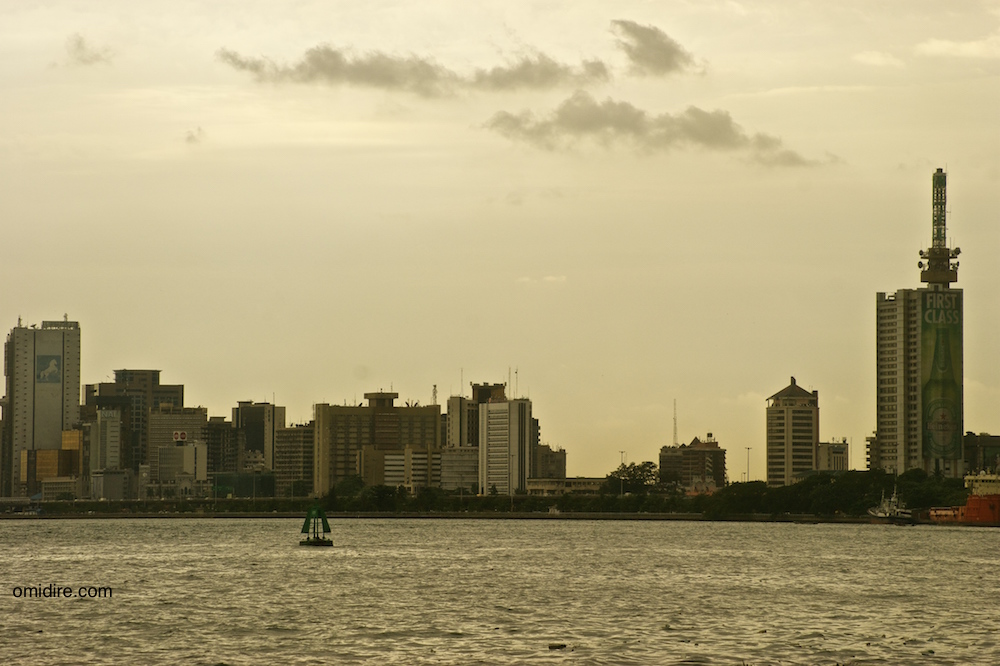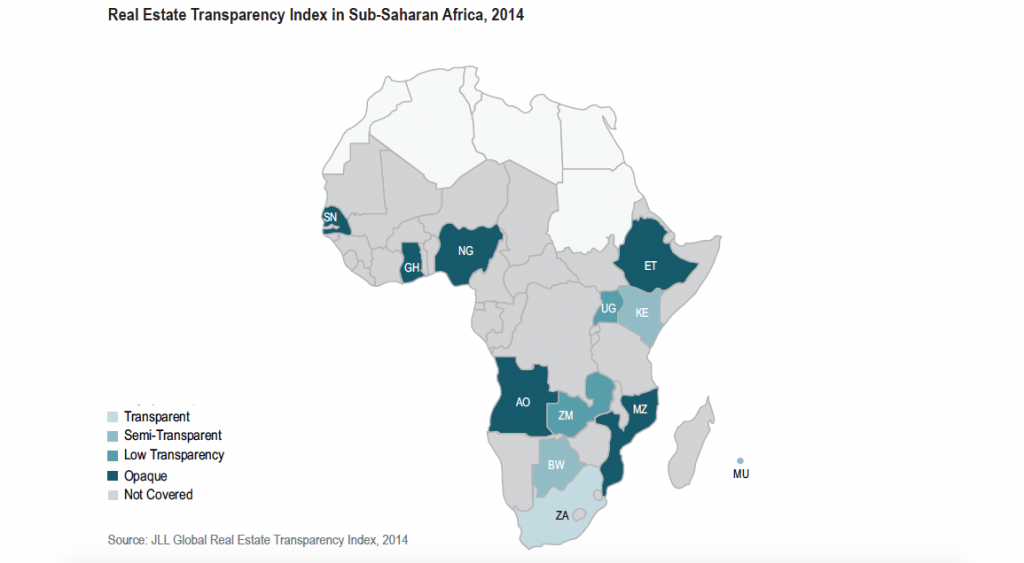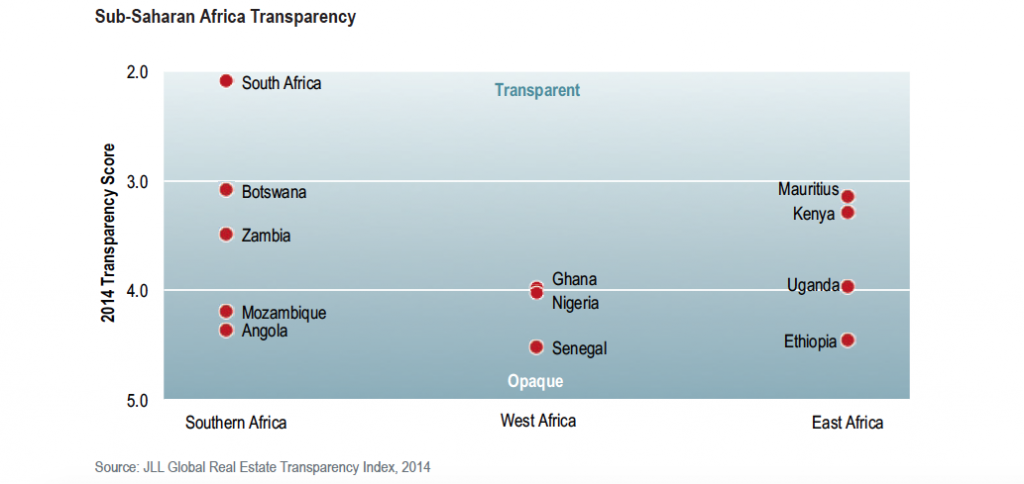Real Estate Transparency Improves in Sub-Saharan Africa
Dolapo Omidire . 9 years ago
investment
JLL
lagos
nigeria
premium
real estate
sub saharan africa

Share this post
Subscribe to our newsletter
As the investment interest in Africa and her fast growing economies rise, many more global corporates are keen on establishing a presence across key hubs in Western, Eastern and Southern Africa. Cities and countries that accommodate these corporates best are those with transparent real estate markets and a growing supply of prime grade space. JLL’s 2014 Global Real…
As the investment interest in Africa and her fast growing economies rise, many more global corporates are keen on establishing a presence across key hubs in Western, Eastern and Southern Africa. Cities and countries that accommodate these corporates best are those with transparent real estate markets and a growing supply of prime grade space.
JLL’s 2014 Global Real Estate Transparency Index shows that Sub-Saharan Africa experienced the greatest regional increase in real estate transparency over the last two years. However, many of these improvements are still at an early stage still with significant challenges. While many African real estate markets are still considered opaque, Kenya, Nigeria and Ghana were noted among the top 5 best global improvers in transparency as governments improved regulatory framework and physical infrastructure.

In Nigeria, the scale of development in key cities like Lagos and Abuja are driving the push towards transparency. Local service providers are beginning to see the key role ttransparency plays in making international investors or corporates comfortable when they are operating in risky markets with disparity to international standards.
JLL noted the Lagos State Real Estate Transaction Department as a transparency driver in Nigeria. The department oversees compliance with property regulations, licensing and enforcing codes of conduct for real estate agents, and investigating and prosecuting complaints. Efforts to create GIS maps as well a new e-approval system for development permits which Governor Fashola has spoken on were also commended.
Lack of market data and inefficiency remain substantial hurdles. The data sharing culture with the shared goal of transparency and inclusive growth is still at odds with many stakeholders in the Nigerian real estate market. However, improvements, though sluggish, mean that the outlook is optimistic.
In other Sub-Saharan countries like Ghana and Kenya initiatives driving real estate transparency according to JLL include new REIT legislation, improved regulatory framework and training programs.

Read the JLL Africa Transparency Index report.
Related News
You will find these interesting

Bisi Adedun . 5 months ago
Africa Investment Forum
AIF

Bisi Adedun . 5 months ago
housing
personal finance

Bisi Adedun . 5 months ago
Century city
New City